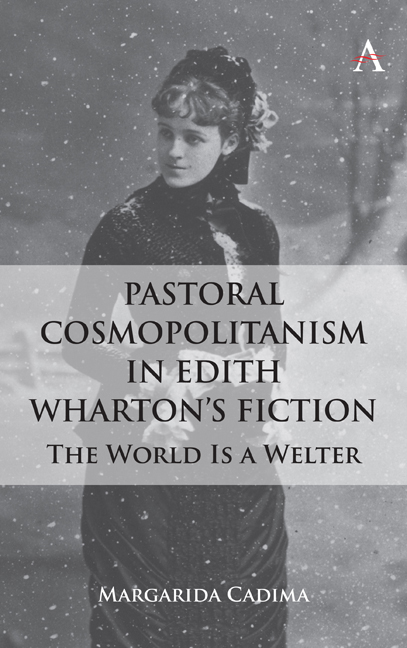Conclusion
Published online by Cambridge University Press: 28 February 2024
Summary
Where indeed—she wondered again—did one's own personality end, and that of others, of people, landscapes, chairs or spectacle-cases, begin?
In Twilight Sleep, the protagonist Nona Manford considers the extent to which “people” interact with, and are transformed by, the cultural “landscapes” they visit or occupy. One of the goals of this book has been to demonstrate that while the pastoral seems to portray troubling fractures between the social self and native soil, Wharton is more struck by how these ostensibly divergent cultural categories superimpose and interpenetrate to form an ecocritical palimpsest. This is a finding that resonates with Greg Garrard's recent claim that the methods, motifs and practices of American “pastoral can be radical.” Like Terry Gifford and Lawrence Buell before him, Garrard recognizes that for ecocriticism, pastoral tropes—yearning for a socially stable rustic elsewhere with its pristine lakes and isolated farmsteads, the poetic motifs of “retreat-and-return,” plus the ethical unease triggered by unregulated industries—are not simply elements of fanciful literary texts but decisively shape the way contemporary readers grasp and interpret their material surroundings. This notion is elaborated by contributions to the essay collection Ecocritical Theory: New European Approaches (2011), which develops Buell's attitude to pastoral by promoting a robust re-orientation of the mode triggered by current environmental anxieties. For Garrard, this makes it all the more crucial to interpret pastoral—and so-called “nature writing” more broadly—not as “a finished model or ideology” but as a literary mode that largely eschews nostalgic posturing in favor of alerting us to the presence of multiple, sometimes conflicting, cultural codes and values. The imagery of apparently carefree and simple rural populations throws into relief the urbane, highly cultured poetic entity that crafts such imagery. Pastoral is therefore, in Garrard's view, an insistent “questioning” regarding the formation of an ethical individual and a good society, “be/longing” and the “root of human being on this earth.” It is this type of “questioning” that lends the extract above from Wharton's Twilight Sleep a peculiar intensity. Indeed, one of the central aims of this book has been to treat pastoral as a kind of palimpsest—a “parchment” upon which successive generations of artist-pilgrims have etched their impressions, constantly revising its imagery, formal procedures and lyrical effects.
- Type
- Chapter
- Information
- Pastoral Cosmopolitanism in Edith Wharton's FictionThe World is a Welter, pp. 153 - 162Publisher: Anthem PressPrint publication year: 2023

